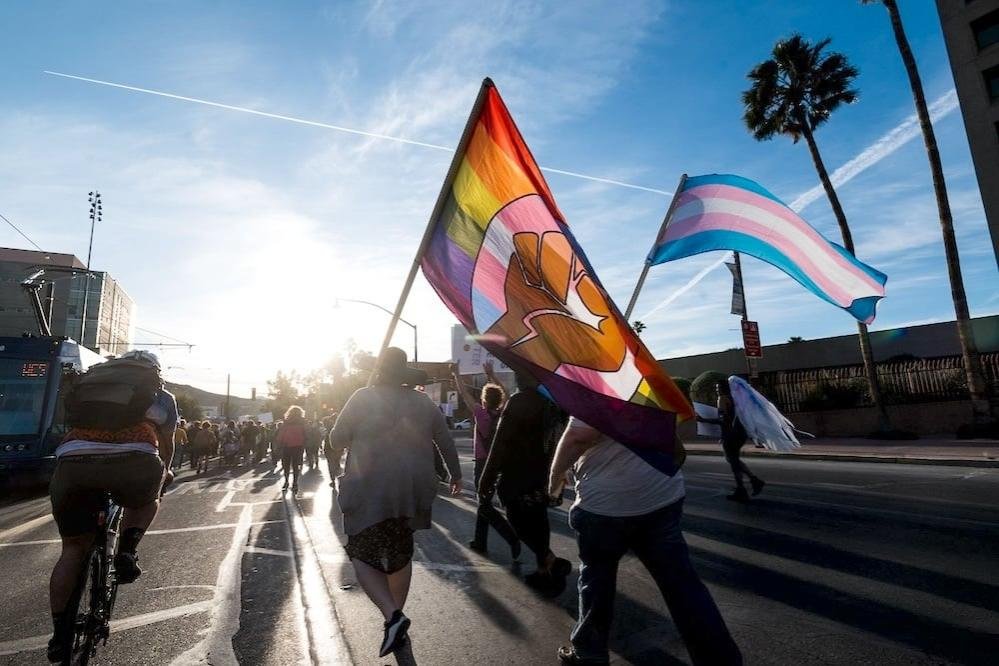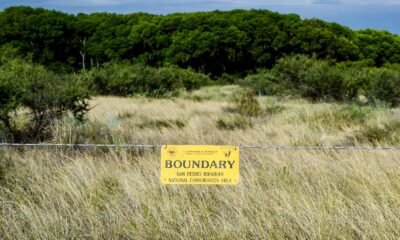crime
In a Conservative Culture War, Queer Educators Find Sanctuary Amidst the Struggle for Gender and Sexuality Rights

A school principal’s worst fears came to fruition when rumors about her sexual orientation began to circulate. The principal, a self-identified “later in life” lesbian, has spent 13 years teaching in a rural area of Arizona’s Southeast Valley. While navigating a divorce from her husband, whispers spread among staff and students regarding her sexuality.
Despite filing a complaint with the district’s human relations department after teachers discussed the rumors at an association meeting, the district failed to take decisive action. Parental inquiries grew, propelled by unsubstantiated claims that the principal was involved in an affair with a female staff member, an accusation she firmly denied.
In a bizarre interrogation reminiscent of McCarthy-era questioning, district representatives probed into her sexual orientation, asking, “Do you believe there is any grooming going on on your side?” She refuted the allegations clearly, prompting her to recognize that her position had become untenable.
Feeling alienated, she grasped that her professional future was at stake. “I’m gay, I don’t belong here,” she recalled, explaining her silence about her identity at work stemmed from fears of retribution and harassment. Driven by the desire to preserve her reputation, she opted to leave her position, recognizing the discriminatory environment she faced.
This scenario isn’t isolated; many educators in Arizona are grappling with similar challenges in a climate that appears increasingly conservative. While state legislation under Gov. Katie Hobbs theoretically protects teachers from discrimination based on sexual orientation, the reality is more complicated. Laws now empower parents who feel public schools have deviated too far from their ideologies, intensifying pressure on LGBTQ+ educators to conceal their identities.
The upcoming legislative sessions in Arizona and at the federal level signify the continuation of political attacks on the LGBTQ+ community. Recently, House Republicans pushed for rules that would restrict funding to schools failing to meet specific guidelines, particularly targeting transgender students in sports.
For many educators, such political maneuvers serve as a reminder of ongoing cultural battles that have loomed large over public education. Conservative lawmakers criticizing public schools for allegedly promoting “gender ideology” and “critical race theory” have exacerbated tensions within school environments.
A fifth-grade teacher, who transitioned in 2017 and asked to remain anonymous, has faced scrutiny and hostility from a vocal minority of parents. Despite embodying visible support for the LGBTQ+ community, she continues to navigate a delicate balance between her identity and the backlash associated with it.
Marisol Garcia, president of the Arizona Education Association, emphasized that legal protections do not shield teachers from the verbal and emotional fallout stemming from aggressive political rhetoric. “We can’t rely on the courts anymore,” she stated, recognizing the profound toll these experiences take on educators’ mental health and security.
River Chunnui, a Peoria teacher, described the feeling of being constantly on edge after being publicly targeted by school board members. Harassment escalated after a simple email supporting Transgender Day of Visibility went viral, leading to threats and property damage.
Chunnui remains resolute in their decision to be visible despite the challenges, stating, “They want us to hide. They want us to be invisible. I’m not going to run away.” The fight for acceptance and support continues for many educators facing similar trials, encapsulated by Tami Staas, who has also initiated legal action following harassment tied to her identity as a queer teacher.
As the pressures mount, both educators and their advocates stress the importance of community support. Staas encourages parents to vocalize their appreciation for teachers who champion inclusivity, reminding them of the essential role educators play in shaping the future. “Speak out for your teachers who are showing up for your students,” she urged, underscoring the value of allyship in advocating for a safe and affirming educational environment.


















